Home automation hubs have become central to creating smart homes, offering seamless integration and control over various smart devices. In this comprehensive guide, we'll explore everything you need to know about home automation hubs, from their functions and benefits to choosing the right one for your needs.
Understanding Home Automation Hubs
Home automation hubs serve as the brain of your smart home, allowing you to connect and control multiple devices from a single interface. These hubs act as a bridge between different protocols and standards used by smart devices, enabling communication and interoperability.
Functions of Home Automation Hubs
- Centralized Control: Home automation hubs provide a unified platform to manage and control all connected devices, including lights, thermostats, cameras, and sensors.
- Interoperability: Hubs support various communication protocols such as Wi-Fi, Bluetooth, Zigbee, and Z-Wave, ensuring compatibility with a wide range of smart devices.
- Automation: Users can create customized automation routines and scenarios based on triggers like time, location, or sensor data, enhancing convenience and efficiency.
- Remote Access: With mobile apps and cloud connectivity, homeowners can remotely monitor and control their smart home devices from anywhere with an internet connection.
- Voice Control: Many home automation hubs integrate with popular voice assistants like Amazon Alexa and Google Assistant, enabling hands-free control and voice commands.
Choosing the Right Home Automation Hub
Selecting the right home automation hub depends on several factors, including compatibility, features, and ecosystem integration. Here are some key considerations to keep in mind:
1. Compatibility
Ensure that the home automation hub supports the communication protocols used by your existing smart devices. Check compatibility with popular brands and standards to avoid compatibility issues.
2. Ecosystem Integration
Consider the ecosystem and ecosystem integration of the home automation hub. Some hubs may be more compatible with specific brands or ecosystems, offering seamless integration with other devices and services.
3. Scalability
Choose a home automation hub that can scale with your needs as you add more smart devices to your home. Look for hubs with expandable capabilities and support for a large number of connected devices.
4. Security and Privacy
Prioritize hubs with robust security features, including encryption, regular firmware updates, and user authentication mechanisms. Protecting your smart home from potential security threats and privacy breaches is paramount.
5. User Interface and Experience
Evaluate the user interface and experience offered by the home automation hub. Opt for hubs with intuitive mobile apps and user-friendly interfaces that simplify device setup, configuration, and management.
Popular Home Automation Hubs
While there are numerous home automation hubs available in the market, some of the most popular ones include:
- Samsung SmartThings: Known for its versatility and wide device compatibility, SmartThings offers a user-friendly interface and robust automation capabilities.
- Hubitat Elevation: Hubitat provides local processing and privacy-focused automation, appealing to users who prioritize data security and offline operation.
- Apple HomeKit: HomeKit offers seamless integration with Apple devices and a focus on privacy and security, making it ideal for Apple ecosystem enthusiasts.
- Google Nest Hub: Nest Hub combines smart home control with a built-in display for added functionality, integrating with Google Assistant and a wide range of smart devices.
Conclusion
Home automation hubs play a crucial role in creating a connected and intelligent home environment, offering centralized control, automation, and interoperability. By understanding their functions and considering key factors like compatibility and security, you can choose the right hub to suit your needs and preferences.
FAQs
Can I use multiple home automation hubs in my smart home setup? Yes, you can use multiple hubs to manage different zones or systems within your smart home, but ensure compatibility and avoid overlapping functionalities.
Do home automation hubs require a stable internet connection? While internet connectivity is required for remote access and cloud-based features, some hubs offer local processing and control for basic functions even without an internet connection.
Can I control my home automation hub with voice commands? Many home automation hubs integrate with popular voice assistants like Amazon Alexa and Google Assistant, allowing you to control devices using voice commands.
Are home automation hubs difficult to install and set up? Installation and setup processes vary depending on the hub and connected devices, but most manufacturers provide detailed instructions and user-friendly apps for ease of use.
Do home automation hubs store my personal data? Home automation hubs may store certain user data for device configuration and operation, but reputable manufacturers prioritize user privacy and implement security measures to protect personal information.
 Beyond Convenience: How Smart Devices Can Enhance Home Security03/28/2024Posted in: GuideRead more
Beyond Convenience: How Smart Devices Can Enhance Home Security03/28/2024Posted in: GuideRead more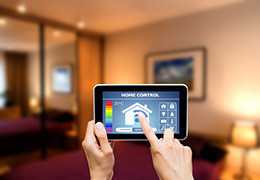 The Ultimate Smart Home Starter Kit: Must-Haves for Beginners (Affordability Edition)03/28/2024Posted in: GuideRead more
The Ultimate Smart Home Starter Kit: Must-Haves for Beginners (Affordability Edition)03/28/2024Posted in: GuideRead more Illuminate Your Life: Home Lighting Automation Explained03/28/2024Posted in: Smart HomeRead more
Illuminate Your Life: Home Lighting Automation Explained03/28/2024Posted in: Smart HomeRead more
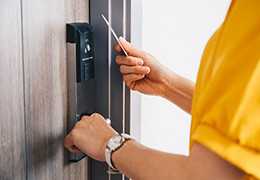 Enhance Your Home Security with a Smart Lock: The Ultimate Guide03/28/2024Posted in: Smart HomeRead more
Enhance Your Home Security with a Smart Lock: The Ultimate Guide03/28/2024Posted in: Smart HomeRead more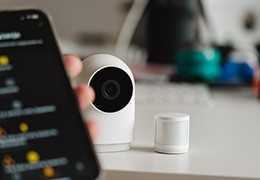
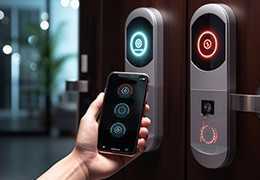 The Ultimate Guide to Home Automation Hubs02/12/2024Posted in: Smart HomeHome automation...Read more
The Ultimate Guide to Home Automation Hubs02/12/2024Posted in: Smart HomeHome automation...Read more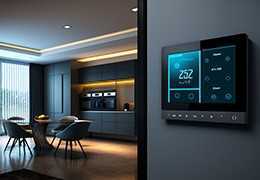 Enhance Your Security: Smart Home Solutions02/12/2024Posted in: Smart HomeIn today's...Read more
Enhance Your Security: Smart Home Solutions02/12/2024Posted in: Smart HomeIn today's...Read more Smart Light Compatibility: Ensuring Seamless Integration02/12/2024Posted in: Smart LightingIn the realm of...Read more
Smart Light Compatibility: Ensuring Seamless Integration02/12/2024Posted in: Smart LightingIn the realm of...Read more
 Beyond Convenience: How Smart Devices Can Enhance Home Security03/28/2024Posted in: GuideSmart home...Read more
Beyond Convenience: How Smart Devices Can Enhance Home Security03/28/2024Posted in: GuideSmart home...Read more The Ultimate Smart Home Starter Kit: Must-Haves for Beginners (Affordability Edition)03/28/2024Posted in: GuideTurn your home...Read more
The Ultimate Smart Home Starter Kit: Must-Haves for Beginners (Affordability Edition)03/28/2024Posted in: GuideTurn your home...Read more Illuminate Your Life: Home Lighting Automation Explained03/28/2024Posted in: Smart HomeThis guide...Read more
Illuminate Your Life: Home Lighting Automation Explained03/28/2024Posted in: Smart HomeThis guide...Read more
 Enhance Your Home Security with a Smart Lock: The Ultimate Guide03/28/2024Posted in: Smart HomeThis guide...Read more
Enhance Your Home Security with a Smart Lock: The Ultimate Guide03/28/2024Posted in: Smart HomeThis guide...Read more
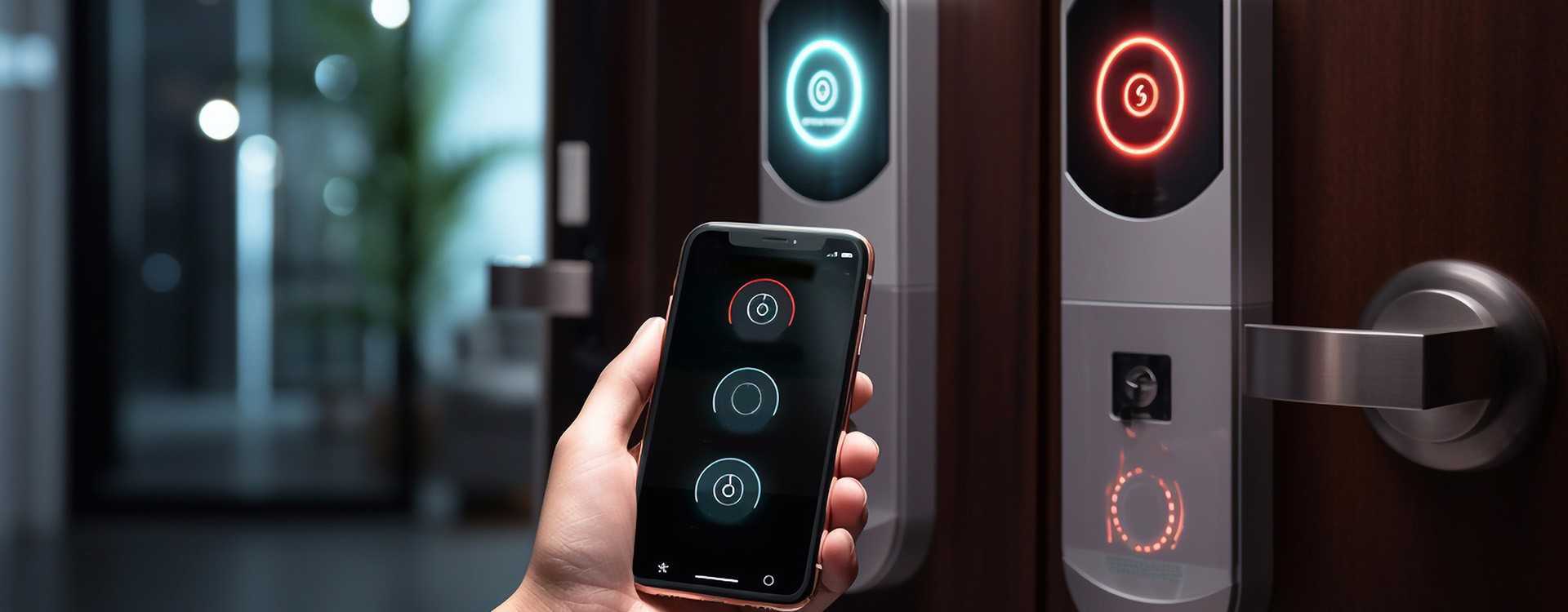



Leave a comment